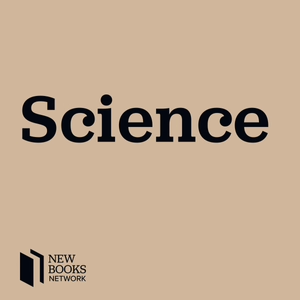
Do Plants ‘Think’? We Might Not Know Enough about Consciousness to be Certain
06/07/24 • 23 min
4 Listeners
Can plants “think?" Do they “talk” to one another? These are questions that scientists are asking—and the answers might surprise you. Zoë Schlanger, climate reporter at The Atlantic, sits down with Science Quickly host Rachel Feltman to discuss her new book The Light Eaters, which explores the surprising science of plant intelligence.
Related Reading:
Brains Are Not Required When It Comes to Thinking and Solving Problems—Simple Cells Can Do It
How Plant Intelligence Can Soothe Climate Anxiety
Email us at [email protected] if you have any questions, comments or ideas for stories we should cover!
Discover something new everyday: subscribe to Scientific American and sign up for our daily newsletter.
Science Quickly is produced by Rachel Feltman, Kelso Harper, Carin Leong Madison Goldberg and Jeff DelViscio. This episode was hosted by Rachel Feltman with guest Zoë Schlanger from The Atlantic. Our show is edited by Elah Feder, Alexa Lim, Madison Goldberg and Anaissa Ruiz Tejada, with fact-checking by Shayna Posses and Aaron Shattuck. The theme music was composed by Dominic Smith.
Learn more about your ad choices. Visit megaphone.fm/adchoices
Can plants “think?" Do they “talk” to one another? These are questions that scientists are asking—and the answers might surprise you. Zoë Schlanger, climate reporter at The Atlantic, sits down with Science Quickly host Rachel Feltman to discuss her new book The Light Eaters, which explores the surprising science of plant intelligence.
Related Reading:
Brains Are Not Required When It Comes to Thinking and Solving Problems—Simple Cells Can Do It
How Plant Intelligence Can Soothe Climate Anxiety
Email us at [email protected] if you have any questions, comments or ideas for stories we should cover!
Discover something new everyday: subscribe to Scientific American and sign up for our daily newsletter.
Science Quickly is produced by Rachel Feltman, Kelso Harper, Carin Leong Madison Goldberg and Jeff DelViscio. This episode was hosted by Rachel Feltman with guest Zoë Schlanger from The Atlantic. Our show is edited by Elah Feder, Alexa Lim, Madison Goldberg and Anaissa Ruiz Tejada, with fact-checking by Shayna Posses and Aaron Shattuck. The theme music was composed by Dominic Smith.
Learn more about your ad choices. Visit megaphone.fm/adchoices
Previous Episode

Snacking on Cicadas Is Nutritious, Sustainable, and—Yes—Delicious
A “double brood” of cicadas is taking over much of the eastern half of the U.S. They’re loud and abundant. Have you considered–eating them? Chef Joseph Yoon, founder of Brooklyn Bugs, explains how to harvest and feast upon this year’s “double brood” and the many benefits of adding insects to our diet.
Related Reading:
– Periodical Cicadas Emerge Every 13 or 17 Years. How Do They Keep Track of Time?
– Can You Eat Cicadas? Can Your Dog Do So?
E-mail us at [email protected] if you have any questions, comments or ideas for stories we should cover!
Discover something new every day: subscribe to Scientific American and sign up for Today in Science, our daily newsletter.
Science Quickly is produced by Rachel Feltman, Kelso Harper, Carin Leong, Madison Goldberg and Jeff DelViscio. This episode was hosted by Rachel Feltman, with guest Joseph Yoon of Brooklyn Bugs. Our show is edited by Elah Feder, Alexa Lim, Madison Goldberg and Anaissa Ruiz Tejada, with fact-checking by Shayna Posses and Aaron Shattuck. The theme music was composed by Dominic Smith.
Learn more about your ad choices. Visit megaphone.fm/adchoices
Next Episode

Rock Samples Taken from Far Side of the Moon and a ‘Morning-After Pill’ for STIs
In this week’s news roundup, we present the latest from the skies and the pillbox. The Hubble Space Telescope is limping along, operating with just one gyroscope to preserve its research capabilities. China’s Chang’e-6 lunar probe is sending back the first ever samples from the far side of the moon. Plus, there are exciting advancements in the world of pharmaceuticals, with the Centers for Disease Control and Prevention endorsing a “morning-after pill” for STIs and artificial intelligence discovering potential novel antibiotics.
E-mail us at [email protected] if you have any questions, comments or ideas for stories we should cover!
Discover something new every day: subscribe to Scientific American and sign up for our daily Today in Science newsletter.
Science Quickly is produced by Rachel Feltman, Kelso Harper, Carin Leong, Madison Goldberg and Jeff DelViscio. This episode was hosted by Kelso Harper. Our show is edited by Elah Feder, Alexa Lim, Madison Goldberg and Anaissa Ruiz Tejada, with fact-checking by Shayna Posses and Aaron Shattuck. The theme music was composed by Dominic Smith.
Learn more about your ad choices. Visit megaphone.fm/adchoices
If you like this episode you’ll love
Episode Comments
Generate a badge
Get a badge for your website that links back to this episode
<a href="https://goodpods.com/podcasts/science-quickly-11614/do-plants-think-we-might-not-know-enough-about-consciousness-to-be-cer-53612191"> <img src="https://storage.googleapis.com/goodpods-images-bucket/badges/generic-badge-1.svg" alt="listen to do plants ‘think’? we might not know enough about consciousness to be certain on goodpods" style="width: 225px" /> </a>
Copy




